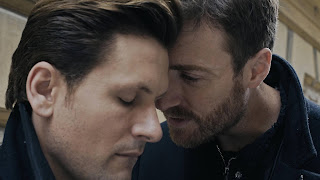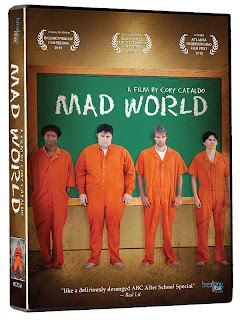Movie Review - The World To Come
The film premiered at the 77th Venice International Film Festival where it won the Queer Lion Award for best LGBTQ themed film. It got a limited theatrical release in February. It eventually moved online in March for a fee, but it was made available on Hulu in June, appropriately for Pride Month, the month that honors the fight for gay rights and LGBTQ rights in general. The film centers on two lesbians or two women with same-sex attraction living in the mid 19th century. This film was positioned during awards season, as many thought it could compete for Academy Awards, much in the way that other recent films centering on lesbians have, like The Favourite (2018), Carol (2015) or The Kids Are All Right (2010). Unfortunately, such wasn't the case. This film was pretty much overlooked.
One of the women in this film did get an Oscar nomination but it was for a different film. It should be noted that this film isn't the only film that's a lesbian period piece to be overlooked recently. Ammonite (2020) was a lesbian period drama set in England. Some thought it would get some Oscar attention, but it didn't. Portrait of a Lady on Fire (2020) was yet another lesbian period drama, but set in France, that came out just before the pandemic in the United States. Some thought it would get some Oscar attention, but it too was denied. The similarities between the latter two lesbian period pieces were so striking that Saturday Night Live even did a spoof about it called "Lesbian Period Drama." It was funny in how accurate it was.
Katherine Waterston (Alien: Covenant and Fantastic Beasts and Where To Find Them) stars as Abigail, a wife living with her husband, possibly in upstate New York, in 1856. She and her husband have a farm with sheep, pigs, cows and chickens. The film follows her life on this farm for the better part of a year. We start with her in January in the start of winter. We leave her in the dead of summer in more ways than one around July or so. She may be a farmer's wife, but she's very intelligent and seemingly educated. She helps her husband manage the books of their farm. She also does her own exquisite writing in her diary or journal, which we hear through voice-over narration, hushed narration as if from a Terrence Malick film. She, like her husband, wanted much more than this provincial life, a la Belle from Beauty and the Beast (1991).
Vanessa Kirby is the actress who was nominated for an Oscar this year, just not for this film. Kirby was recognized for her incredible role in Pieces of a Woman (2021). Here, she plays Tallie, the wife of the farmer who is the closest neighbor to Abigail. She's just a sheer beauty with long, flowing, red hair. There is an instant attraction between her and Abigail upon seeing each other. The two clearly have same-sex attraction and it's clear, given their lives, that they rarely have the opportunity to see other people, particularly women. Whenever they can, they spend time together romantically, culminating in physical intimacy.
We don't get much from Tallie. She's mainly just the object of Abigail's affection. We get that she too is intelligent and seemingly well-read too. Her backstory isn't really mined for much depth. We mostly just get that she's in a marriage that is or that becomes increasingly abusive, probably due to her lack of desire for her husband. As usual though, the husbands aren't just place-holders and aren't the focus here. Tallie's husband, Finney, played by Christopher Abbott (First Man and It Comes At Night), exists just to be menacing. Abigail's husband, Dyer, played by Casey Affleck (Manchester By the Sea and The Assassination of Jesse James By the Coward Robert Ford), gets more depth, as a man who wanted to be a scientist but landed on being a farmer. He's the one who remains more in the dark though about his wife's homosexuality.
There's nothing notable in terms of the characters. What is notable is the look of this film. What's notable is that this film was actually shot on film. In certain scenes, it becomes really obvious because the images look very grainy. A check of the technical specs reveal that it was shot on 16 mm that's been blown up, so yes the graininess is very apparent. Director Mona Fastvold really utilizes the celluloid and what's probably a lot of natural lighting to really underscore the old world feeling. Fastvold really immerses the audience into the 19th century and makes us soak it up.
Rated R for some sexuality and nudity.
Running Time: 1 hr. and 44 mins.
Available on Hulu.













Comments
Post a Comment